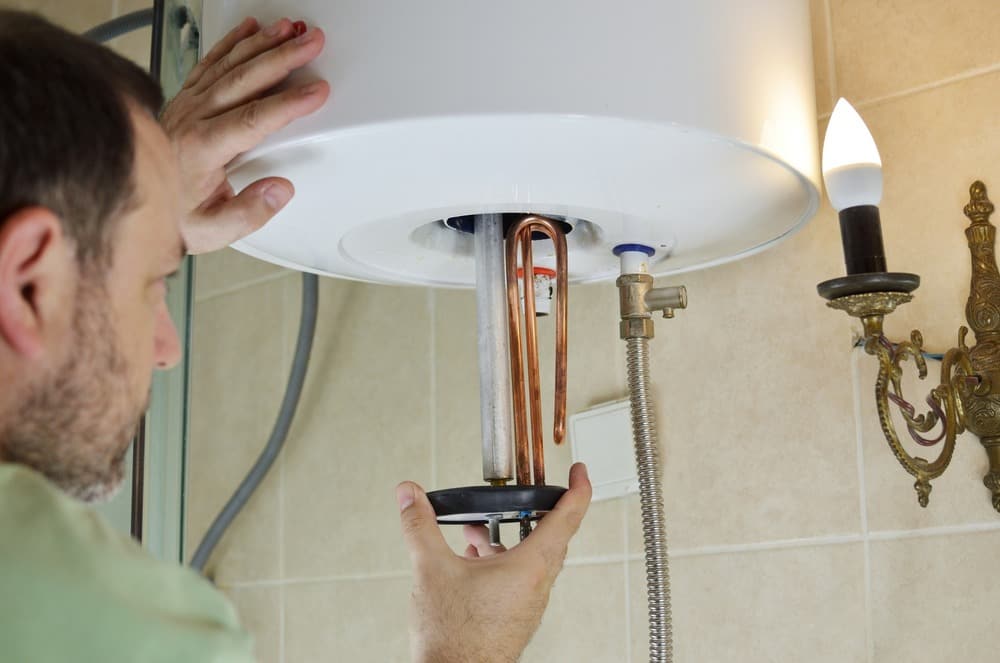
When winter’s cold grip tightens, many homeowners worry that their pipes may freeze. However, few contemplate the potential of a frozen water heater. Yes, it can happen, and when it does, the consequences are more than just a little annoyance. Today, we’ll look in depth at the frozen water heater issue, including how it occurs, the hazards it brings, and how to properly defrost one.
The Chilling Truth About a Frozen Water Heater
Water heaters are typically situated in basements or garages, where temperatures can dip below freezing during harsh winters. When the water inside the heater freezes, it expands and puts immense pressure on the tank and its components. This can lead to fractures, leaks, or even a catastrophic explosion. Every household must understand the warning signs and take precautionary steps. If you’re unsure how to protect your system, our Snohomish water heater repair experts can help ensure your water heater is safeguarded against freezing conditions.
Spotting the Freeze
How can you tell if your hot water heater has frozen? The most obvious indication is a shortage of hot water. If you turn on the faucet and only get cold water, it’s an obvious indication that something is wrong. In addition to the sudden chilly shower, listen for strange gurgling or cracking noises coming from the tank, which might signal that ice is developing.
Another apparent sign is frost or ice on the tank’s outside, which should not be overlooked. Finally, keep an eye out for any water gathering around the base of the heater; this might indicate that the tank has already suffered damage from the expansion of frozen water within. All of these indicators indicate that your water heater needs maintenance to prevent additional harm.
Furthermore, if after thawing, you notice a persistent foul odor in your hot water, it could be a sign of bacterial growth or mineral buildup, problems distinct from freezing, but requiring prompt attention. If you are experiencing a smell in your water after thawing, it may be beneficial to research how to fix smelly water from water heater to address the issue properly.
Why It Happens
The major causes of a frozen water heater are insufficient insulation and low thermostat settings. Garages and basements, which are generally inadequately insulated, provide ideal cold air traps for your water heater. If the thermostat on the unit is set too low, it may not activate frequently enough to keep the water heated, resulting in freezing.
Steps to Thaw a Frozen Water Heater
Thawing a frozen water heater takes time and care to avoid harm. Here’s a step-by-step instructions:
Turn Off the Power: Safety first! For electric water heaters, turn off the power at the circuit breaker. For gas models, switch off the gas and extinguish the pilot light.
Check for Leaks: Before you start thawing, look for any cracks or leaks. If you see significant damage, contact a specialist.
Apply Heat: To administer heat to frozen regions, use a movable space heater, heat lamp, or hair dryer. Never use open flames since they can harm the tank and cause fires.
Open the Faucets: As you defrost the tank, turn on the hot water taps in your home. This allows steam and water to escape, reducing pressure and accelerating the thawing process.
Inspect the System: Once thawed, check your hot water heater pipes for any leaks or minor damage. If in doubt, consult a specialist.

Preventing Future Freezes
To avoid the difficulty of a frozen water heater, take these precautionary measures:
- Insulate the Water Heater: Investing in a water heater blanket will keep the unit warm even when temperatures drop.
- Maintain a Safe Temperature: Keep the thermostat set higher than 55 degrees Fahrenheit, especially if the area is prone to cold spells.
- Insulate the Space: To keep the area surrounding your water heater warmer, consider adding insulation to the garage or basement walls and doors.
When to Call a Professional
If you’re unsure about any of these tasks or if your water heater shows signs of damage after thawing, contact a water heater service expert. Sometimes, the damage is extensive and not immediately noticeable. Professionals can provide a thorough inspection and repair services as needed.
Final Thoughts on Thawing A Frozen Water Heater
As we’ve seen, a frozen water heater is more than just a winter fantasy; it’s a genuine threat that may cause substantial home misery. You can protect your house against cold weather by taking precautions and understanding how to respond to freezing indicators.
For Sonohomish, WA homeowners, using a dependable service provider like Trade Works NW for plumbing issues guarantees that you are never left in the cold. Whether it’s normal maintenance or emergency services, our knowledgeable staff is ready to assist. Don’t be surprised by the cold winter weather. Visit Trade Works NW now to make certain your water heater is in top condition and ready to face the chilly days ahead.
